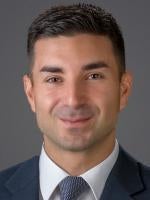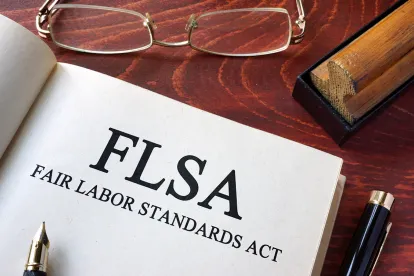On April 14, 2023, the United States District Court for the Eastern District of Virginia (Ellis, J.) declined to conditionally certify a collective of USA Today sports website editors, ruling that the familiar two-step Fair Labor Standards Act (FLSA) collective certification process would lead to irrelevant parties learning of and potentially joining the lawsuit. In its ruling in Mathews v. USA Today Sports Media Group, LLC, the district court relied heavily on the Fifth Circuit Court Appeals’ landmark decision in Swales v. KLLM Transport Services, L.L.C., which requires district courts to conduct a more rigorous analysis before ordering notice to potential plaintiffs who may be eligible to opt in to an FLSA lawsuit.
The Sixth Circuit Court of Appeals is set to rule on the issue soon. In December 2022, the Sixth Circuit heard oral argument on an appeal seeking to overturn a lower court’s order that conditionally certified two collective actions alleging the denial of overtime and travel time pay to home health aides.
The Mathews Holding
Plaintiff Elizabeth Mathews alleged that she and similarly situated employees were misclassified as independent contractors and owed unpaid overtime under the FLSA. Mathews moved to conditionally certify a collective of current and former employees who had allegedly suffered the same violation. USA Today Sports Media Group, LLC, the defendant, opposed the motion on the ground that the FLSA did not authorize such conditional collective “certifications” or, alternatively, that limited discovery was warranted to determining whether Mathews could demonstrate that her proposed collective met the FLSA’s “similarly situated” standard.
In support of its argument, USA Today Sports Media Group cited the Fifth Circuit’s 2021 decision in Swales, which held that district courts are not permitted to conditionally certify FLSA collective actions before determining whether collective members are similarly situated. Rather, district courts must determine whether proposed collective action members are similarly situated only once and authorize discovery on that point before making that determination. Under Swales, such discovery should be limited to whether the named plaintiff and the proposed collective are “similarly situated”; the remainder of discovery in the case should occur only after the district court determines whether the plaintiff’s proposed collective members are all “similarly situated.”
Mathews argued that the district court should follow the familiar two-step collective certification method. Under the two-step process, a plaintiff need make only a minimal showing of “similarly situated” employees to obtain “conditional certification” and have notice sent to potential plaintiffs. Mathews could meet this initial showing with her own pleadings and affidavits. The more rigorous second step occurs after employees have had the opportunity to opt in and the parties have completed substantial discovery. Only after discovery can a defendant move to “decertify” the conditionally certified collective class.
In Mathews, the United States District Court for the Eastern District of Virginia rejected the two-step process, closely tracking the Fifth Circuit’s reasoning in Swales. The court observed that the FLSA does not authorize district courts to send notice to individuals who are not “similarly situated.” The court ordered the parties to conduct limited discovery to determine which putative collective members were similarly situated for purposes of sending notice.
Key Takeaways
The decision in Mathews represents a growing trend against the familiar two-step approach to certification of collective actions under the FLSA. The decision by the United States District Court for the Eastern District of Virginia sets the stage for an appeal to the Fourth Circuit Court of Appeals. The outcome of any such appeal, along with the Sixth Circuit’s imminent ruling on the same question, could well create a substantial split in the circuits, increasing the likelihood that the issue ultimately will make its way to the Supreme Court of the United States.






 />i
/>i

